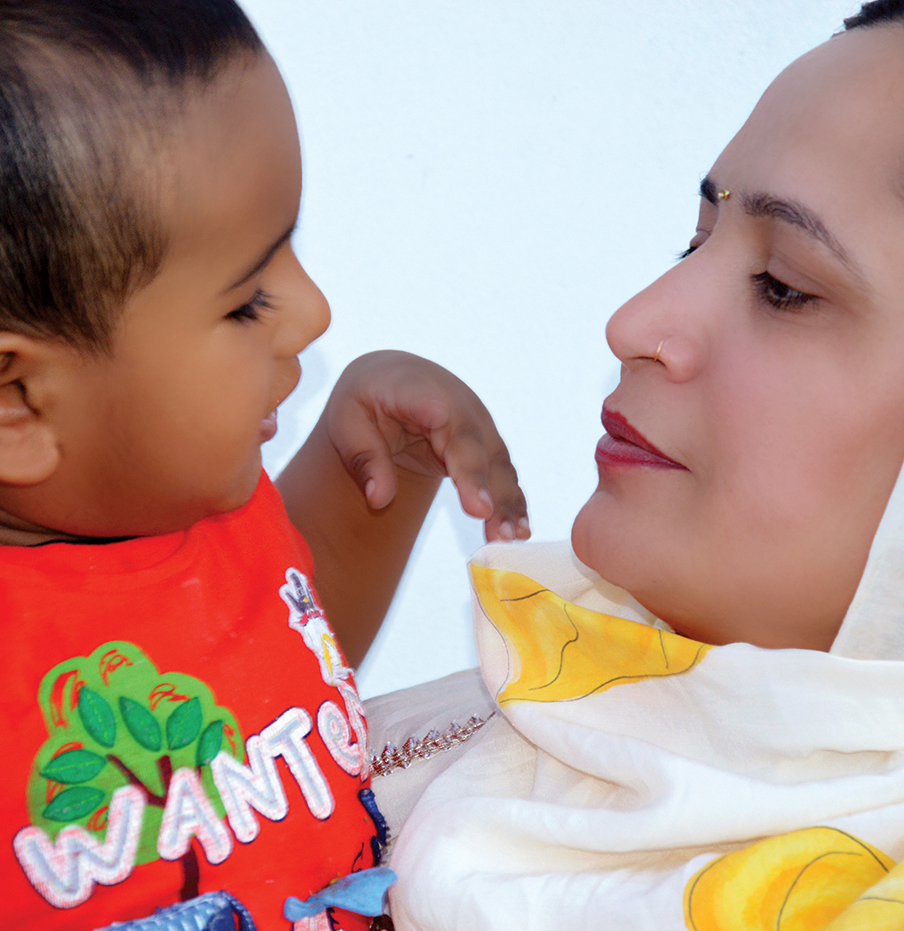
Professor Laura Justice
Riveting Research in Early Childhood: A monthly blog series that gives a succinct summary of a new study that is compelling in both design and implications.
March 2022
By: Dr. Laura Justice
Research citation: Borairi, S., Fearon, P., Madigan, S., Plamondon, A., & Jenkins, J. (2021). A medication meta-analysis of the role of maternal sensitivity in the association between socioeconomic risk and children’s language. Child Development, 92, 2177-2193.
A brief look at the study’s background
Poverty has well-documented negative effects on children’s language development, particularly in the birth-to-five period. In part, this is because children’s brains are highly plastic during this period and thus are highly affected by the stressors of poverty. Researchers have long sought to identify the pathways through which poverty affects children’s language development; for instance, does poverty influence children’s language development via its affect on caregivers’ capacity to optimally care for their children?
One parenting behavior that has been linked to children’s language development is responsivity. Responsivity is the parents’ ability to “perceive and interpret the child’s signals and to respond to those cues and signals promptly and appropriately” (Borairi et al., 2021, p. 2180). From a linguistic perspective, responsivity is typically defined as a parent’s response that is highly attuned to what their child said; for instance, a responsive parent would follow their child saying, “My little kitty” with something that builds directly on this statement (e.g., “Yes, that is your little kitty” or “Your little kitty is so cute”). Scholars view this kind of responsivity as an important way to promote children’s language skills because it gives a more sophisticated model of language that is adjacent to what the child said.
In this study, the authors proposed that the link between socioeconomic risk (to include low socioeconomic status, or poverty) and children’s language development is driven, at least in part, by maternal responsivity. Put together, the pathway linking these three constructs is such that
socioeconomic risk > responsivity > children’s language development
One way to think about this is that parents who are more advantaged tend to be more responsive in their interactions with their children, which in turn enhances language development. Conversely, parents who are less advantaged, such as those residing in poverty, tend to less responsive to their children which in turn compromises children’s language development. It is important to understand that this lower responsiveness is not a function of parents not caring for their children, but that residing in poverty creates highly stressful situations that can impede parents’ ability to optimally care for their children.

How the study was designed and what it found
Borairi and colleagues’ study featured a mediation meta-analysis as the primary research method. As discussed in a recent Riveting Research blog, a meta-analysis is essentially a ‘study of studies,’ meaning that it is used to analyze findings across a variety of like-minded studies.
In this case, the meta-analysis focused on studies that have examined mediation, which is the term used to describe the pathway, or causal chain, linking the three constructs of interest: socioeconomic risk > responsivity > children’s language development. As Borairi and colleagues point out, the goal of “mediation studies is to test a hypothetical causal chain in which one variable X, affects a second variable M, and, in turn, that variable affects a third variable Y” (p. 2179). The relation between the first variable X and the third variable Y is called an indirect effect, as X affects Y through M.
In this mediation meta-analysis, the authors used a systemic process to identify all published studies examining mediation among these three variables (socioeconomic risk, responsivity, and children’s language development), focusing on preschool-aged children who were typically developing. A total of 17 studies with 19 samples were identified for the meta-analysis, with a total sample size exceeding 6,000. Using a meta-analytic structural model to test the relations among the three variables, results were statistically significant. In other words, the mediation meta-analysis showed that socioeconomic risk affects parents’ responsivity which affects children’s language development; this also means that socioeconomic risk has an indirect effect on language development.

Why this study matters
Experts often discuss an opportunity gap in which children in lower-income homes experience developmental vulnerabilities as compared to their more advantaged peers. Social scientists are invested in understanding the nature of this opportunity gap as part of a broader research agenda focused on determining strategies to mitigate this gap.
For some time, experts have identified language development as a developmental phenomenon that is greatly affected by poverty, with some research showing that being raised in poverty exerts negative effects on the young child’s developing brain. It is crucial that we identify how it is that socioeconomic status affects language development so that we can design interventions that target the mechanism through which poverty influences language development.
This study found that caregivers’ responsivity appeared to be a critical link between socioeconomic risk and young children’s language development. Presumably, parents who experience the stressors of poverty – such as non-traditional work hours, juggling multiple jobs, traumatic experiences – are less able to be responsive to their children as compared to advantaged parents. Importantly, this finding indicates that supporting parents experiencing socioeconomic risk to be more responsive to their children may help to mitigate the opportunity, as is the focus of Providence Talks, a city-wide initiative designed to help parents of young children talk more with their children and incorporate responsive strategies in their interactions (see Wong, Thomas, & Boben, 2020).
References
Wong, K., Thomas, C., & Boben, M. (2020). Providence talks: A citywide partnership to address early childhood language development. Studies in Educational Evaluation, 64, 100818.

Professor Laura Justice
Subscribe to the monthly Riveting Research blogs, and get an early look at some of the coolest new early childhood research.
By submitting this form, you are consenting to receive marketing emails from: . You can revoke your consent to receive emails at any time by using the SafeUnsubscribe® link, found at the bottom of every email. Emails are serviced by Constant Contact


